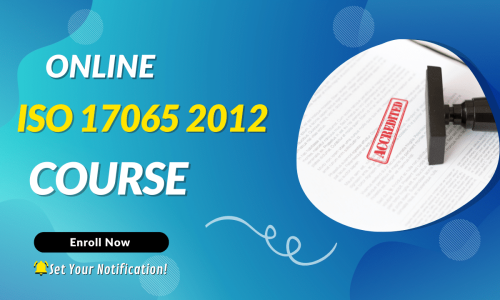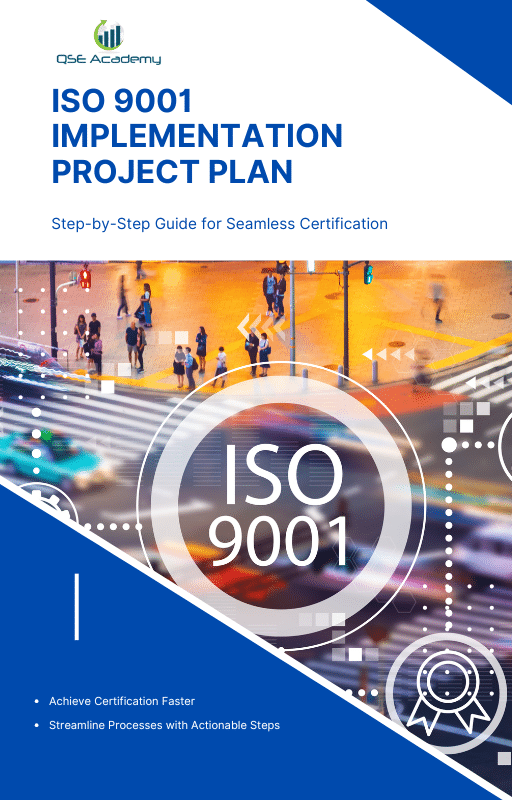What is an iso 9000 series standard?
What is an iso 9000 series standard?
If you’ve ever heard the term “ISO 9000 series” and wondered what it means, don’t worry—you’re not alone! At first glance, it might sound like a complicated technical concept, but it’s actually a straightforward and incredibly helpful set of standards designed to improve how businesses operate. So, what is an ISO 9000 series standard? Simply put, it’s a family of internationally recognized guidelines that help organizations build strong, efficient quality management systems (QMS).
The ISO 9000 series focuses on ensuring that businesses deliver consistent quality, meet customer expectations, and continually improve their processes. It’s like a universal playbook for running a business with clarity and purpose. Whether you’re running a small local store or managing a global corporation, the ISO 9000 series can help you get organized, improve customer satisfaction, and enhance overall performance.
But why does the ISO 9000 series matter, and how does it work in practice? In this article, we’ll break it all down, explore its key components, and show you how this series can transform the way businesses operate. By the end, you’ll have a crystal-clear understanding of what an ISO 9000 series standard is and why it’s worth exploring for any organization looking to improve its quality and efficiency. Let’s dive in!
Understanding the ISO 9000 Series
If you’ve been curious about what an ISO 9000 series standard actually entails, you’re in the right place. Let’s take a closer look at what this series is all about and why it plays such a significant role in quality management systems worldwide.
What is the ISO 9000 Series?
At its core, the ISO 9000 series is a family of standards developed by the International Organization for Standardization (ISO). These standards serve as a guide for businesses and organizations to establish, maintain, and improve their quality management systems (QMS). But what makes it special? The ISO 9000 series isn’t just about creating rules to follow—it’s about providing a practical framework that ensures quality, consistency, and continuous improvement.
So, what is an ISO 9000 series standard exactly? Think of it as a toolkit for building a strong foundation in your business. The series helps organizations define clear processes, meet customer needs, and adapt to changing market demands. Whether you’re a startup or a global enterprise, the ISO 9000 series is flexible enough to fit your unique operations.
Key Components of the ISO 9000 Series
The ISO 9000 series is made up of several key standards, each focusing on different aspects of quality management:
- ISO 9000: This is the foundational standard that explains the principles and terms used in quality management systems. It’s like the glossary that helps you understand the big picture.
- ISO 9001: If you’ve heard about ISO certification, this is the star of the show. ISO 9001 outlines the specific requirements for implementing and certifying a quality management system. It’s the standard businesses follow to demonstrate their commitment to quality.
- ISO 9004: While ISO 9001 focuses on meeting customer requirements, ISO 9004 takes it a step further. It provides guidance on achieving long-term success by improving overall performance and sustaining quality management efforts.
Each of these standards works together to create a comprehensive approach to quality management. That’s what makes the ISO 9000 series so effective—it’s not just a single standard but a complete system designed to cover all aspects of quality in a business.
The ISO 9000 series is more than just a set of guidelines; it’s a powerful tool for organizations to achieve consistency, build trust with customers, and adapt to a competitive market. Now that you have a sense of what an ISO 9000 series standard is, let’s dive into why it was created and how it addresses the needs of businesses around the world. Keep reading!
Why Was the ISO 9000 Series Created?
To truly understand what an ISO 9000 series standard is, it helps to know why it was created in the first place. After all, no global standard just appears out of thin air! The ISO 9000 series was developed to solve a growing problem in business: ensuring quality and consistency across industries, companies, and even countries.
The Need for Consistency in a Global Market
Imagine doing business with a supplier in another country. You might wonder: Will their products meet the same standards as mine? Will they deliver on time? Will their processes align with my company’s needs? These questions highlight the challenge businesses faced before the ISO 9000 series existed. There wasn’t a universal system to ensure that quality and processes were consistent everywhere.
That’s where the ISO 9000 series comes in. It was created by the International Organization for Standardization to provide a common language and framework for quality management. What is an ISO 9000 series standard in this context? It’s a way to level the playing field, helping businesses communicate and collaborate effectively, regardless of their location or industry.
Building Trust Through Standardization
The ISO 9000 series wasn’t just about processes—it was about trust. Customers needed to know they could rely on companies to deliver quality products and services, while businesses wanted to build stronger relationships with their partners and suppliers. By introducing the ISO 9000 series, organizations could demonstrate their commitment to quality in a way that was recognized and respected worldwide.
This global trust is one of the reasons why the ISO 9000 series has become so important. Whether you’re manufacturing car parts, providing healthcare services, or running a small business, following the ISO 9000 series shows your customers and partners that you take quality seriously.
Adapting to Change and Driving Improvement
Another reason the ISO 9000 series was created is to help businesses adapt to change. Markets evolve, technologies advance, and customer expectations shift—and organizations need a framework to keep up. What is an ISO 9000 series standard’s role here? It’s all about promoting continuous improvement. The series encourages businesses to regularly review their processes, identify areas for growth, and make adjustments to stay competitive.
In short, the ISO 9000 series was born out of a need for consistency, trust, and adaptability in a fast-changing world. It’s a system designed to bring order to chaos, helping businesses of all sizes work smarter and deliver better results. Now that you know why it exists, let’s explore how the ISO 9000 series works in practice and how it can be applied to your organization! Keep reading to discover more.
How Does the ISO 9000 Series Work in Practice?
Now that we know why the ISO 9000 series was created, let’s dive into how it actually works in the real world. So, how does an ISO 9000 series standard help businesses? It’s all about providing a clear framework that organizations can use to streamline their operations, improve quality, and ensure they consistently meet customer expectations. Let’s break it down.
Key Principles of the ISO 9000 Series
At the heart of the ISO 9000 series are seven key principles that guide how businesses approach quality management. These principles aren’t just theoretical—they’re practical concepts that help businesses operate more effectively. Here’s a quick look at them:
- Customer Focus: Everything starts with the customer. The ISO 9000 series emphasizes understanding customer needs and delivering products and services that meet or exceed their expectations.
- Leadership: Strong leadership is critical. The series encourages top management to set clear goals and inspire their teams to achieve them.
- Engagement of People: Everyone in the organization has a role to play in quality management. The ISO 9000 series promotes collaboration and involvement at all levels.
- Process Approach: Instead of looking at individual tasks in isolation, the series focuses on how different processes work together to achieve the desired outcome.
- Improvement: Continuous improvement is a cornerstone of the ISO 9000 series. It’s all about finding ways to get better every day.
- Evidence-Based Decision Making: Decisions should be based on data and facts, not guesswork. The series emphasizes the importance of using reliable information.
- Relationship Management: Success isn’t just about internal processes—it’s also about building strong relationships with suppliers, partners, and customers.
These principles form the backbone of how the ISO 9000 series works, giving businesses a clear set of values to follow.
Using the ISO 9000 Series to Build a Quality Management System
The ISO 9000 series isn’t a one-size-fits-all solution. Instead, it’s a flexible framework that businesses can adapt to their specific needs. For instance:
- ISO 9000: This standard explains the terminology and concepts of quality management, making it the starting point for businesses new to the series.
- ISO 9001: This is the practical, hands-on standard that outlines the requirements for creating, implementing, and maintaining a quality management system (QMS). It’s also the one businesses use to get certified.
- ISO 9004: This standard goes beyond the basics, offering guidance on achieving long-term success by improving overall performance.
When a business implements the ISO 9000 series, it typically starts with understanding its current processes, identifying gaps, and using the standards to create a more efficient, effective system.
Applying the ISO 9000 Series Across Industries
What makes the ISO 9000 series so powerful is its adaptability. Whether you’re in manufacturing, healthcare, education, or even hospitality, the series can be tailored to fit your industry’s unique needs. That’s why so many businesses around the world rely on it to improve quality, build trust, and stay competitive.
In practice, the ISO 9000 series is like a reliable roadmap for businesses looking to achieve consistent quality and growth. It combines timeless principles with practical steps, making it an incredibly valuable tool for organizations of all sizes. Now that we’ve explored how the series works, let’s talk about the benefits it brings and why so many businesses choose to adopt it! Keep reading to learn more.
Benefits of the ISO 9000 Series Standards
By now, you might be wondering: what makes the ISO 9000 series so popular? And more importantly, how can it help businesses? To fully understand what an ISO 9000 series standard can do, let’s explore the many benefits it offers. Spoiler alert: it’s about much more than just improving quality—it’s about transforming how businesses operate and compete.
Improved Operational Efficiency
One of the biggest perks of adopting the ISO 9000 series is that it helps businesses streamline their processes. When you follow an ISO 9000 series standard, you’re essentially creating a roadmap for how things should be done. This reduces guesswork, eliminates unnecessary steps, and ensures that everyone is working toward the same goal. The result? Less wasted time and resources, and a much smoother operation overall.
For example, imagine a small manufacturing company struggling with product defects. By using the ISO 9000 series, they can pinpoint where things are going wrong, refine their processes, and dramatically reduce errors. It’s all about working smarter, not harder.
Enhanced Customer Satisfaction
At the heart of the ISO 9000 series is a focus on the customer. After all, happy customers are the key to long-term success, right? Following the principles of the ISO 9000 series ensures that businesses understand their customers’ needs and consistently meet (or exceed) their expectations.
How does this look in practice? Let’s say a service company implements ISO 9001 (the most well-known standard in the ISO 9000 series). By standardizing their processes and addressing customer feedback, they’re able to provide a more reliable service experience. Over time, this builds trust and loyalty, which is priceless in today’s competitive market.
Global Recognition and Trust
Another huge advantage of the ISO 9000 series is that it’s recognized and respected worldwide. When a company follows an ISO 9000 series standard, it’s like holding up a badge that says, “We’re committed to quality.” This builds trust not only with customers but also with partners, suppliers, and stakeholders.
For businesses looking to expand internationally, this is especially important. Adopting the ISO 9000 series can open doors to new markets by showing potential partners and clients that your operations meet globally accepted standards.
Continuous Improvement and Long-Term Success
One of the most exciting parts of the ISO 9000 series is its emphasis on continuous improvement. It’s not just about fixing problems—it’s about always looking for ways to do things better. This mindset keeps businesses ahead of the curve, whether it’s through adopting new technologies, refining workflows, or responding to changing customer needs.
For instance, ISO 9004 (a key part of the ISO 9000 series) focuses on achieving sustained success by improving overall performance. It’s a reminder that quality isn’t a one-time achievement—it’s a journey that evolves with your business.
Adaptability Across Industries and Sizes
What’s great about the ISO 9000 series is that it’s incredibly versatile. Whether you’re running a small family-owned bakery or a multinational corporation, there’s a way to apply these standards to your operations. The framework is flexible enough to be tailored to your specific needs, making it accessible to businesses of all shapes and sizes.
The benefits of the ISO 9000 series are clear: better efficiency, happier customers, stronger relationships, and a focus on continuous improvement. But perhaps the biggest takeaway is that these standards provide a proven, practical way to enhance quality and drive success. If you’re wondering whether the ISO 9000 series could work for your business, the answer is almost always yes! Ready to see who should use these standards and why? Let’s dive into that next!
Who Should Use the ISO 9000 Series Standards?
Now that we’ve explored what an ISO 9000 series standard is and the benefits it brings, let’s answer a big question: who should actually use these standards? Spoiler alert—it’s not just for giant corporations or manufacturing companies! The beauty of the ISO 9000 series is that it’s designed to be flexible and adaptable, making it useful for businesses of all shapes, sizes, and industries. Let’s break it down.
Small Businesses and Startups
You might think the ISO 9000 series is only for large companies with big budgets, but that couldn’t be further from the truth. Small businesses and startups can benefit just as much from these standards. In fact, the ISO 9000 series can help small organizations build strong foundations as they grow.
For example, a small bakery could use the ISO 9000 series to ensure consistent quality in its recipes, streamline the production process, and improve customer satisfaction. By having clear processes in place from the beginning, smaller businesses can avoid common pitfalls and set themselves up for long-term success.
Manufacturing and Production Industries
It’s no surprise that manufacturing companies are among the biggest users of the ISO 9000 series. After all, maintaining consistent quality is critical when you’re producing physical goods. What is an ISO 9000 series standard’s role here? It provides a framework to ensure that every product meets the same high standard, every time.
Take an automotive parts manufacturer, for instance. They could implement ISO 9001 to document their production processes, reduce defects, and ensure every part meets safety requirements. This not only helps them build trust with their customers but also saves money by reducing waste and errors.
Service-Based Businesses
If you’re in a service industry, you might wonder how the ISO 9000 series applies to you. The answer? Perfectly! Service-based businesses can use the standards to improve their customer experience, streamline workflows, and build trust.
For instance, a hotel might adopt the ISO 9000 series to standardize its cleaning procedures, improve booking processes, and ensure that every guest has a positive experience. By focusing on consistency and customer satisfaction, service businesses can create loyal customers who keep coming back.
Healthcare and Education
The ISO 9000 series is also incredibly valuable in sectors like healthcare and education, where quality and reliability are non-negotiable. Hospitals can use the standards to improve patient care and safety, while schools can apply them to enhance teaching methods and administrative processes.
For example, a healthcare clinic might use the ISO 9000 series to ensure consistent treatment protocols, improve record-keeping, and enhance overall patient satisfaction. This not only builds trust with patients but also helps the clinic run more efficiently.
Organizations Looking to Expand Globally
If your business is thinking about expanding into international markets, the ISO 9000 series can be your best friend. Since these standards are recognized and respected worldwide, adopting them shows potential partners and customers that you’re serious about quality. It’s like a universal stamp of approval that opens doors to new opportunities.
The great thing about the ISO 9000 series is that it works for everyone, from small startups to global enterprises, and from service providers to manufacturers. If you’re committed to improving quality, boosting efficiency, and building trust, the ISO 9000 series could be the perfect fit for your organization. Ready to wrap things up? Let’s move on to the conclusion and tie everything together!
Conclusion: What is an ISO 9000 Series Standard and Why Does It Matter?
By now, you should have a clear understanding of what an ISO 9000 series standard is and why it’s such an important tool for businesses across the globe. At its core, the ISO 9000 series is more than just a set of rules—it’s a powerful framework designed to help organizations of all sizes deliver consistent quality, improve customer satisfaction, and stay competitive in an ever-changing market.
So, what is an ISO 9000 series standard in simple terms? It’s a collection of internationally recognized guidelines that help businesses create and maintain effective quality management systems (QMS). Whether you’re running a small business or managing a multinational corporation, these standards give you the tools to streamline operations, reduce errors, and build trust with customers and partners alike.
The ISO 9000 series works by focusing on key principles like customer satisfaction, leadership, and continuous improvement. It’s adaptable enough to fit any industry and flexible enough to meet the unique needs of your organization. And let’s not forget that it’s a globally recognized standard—adopting the ISO 9000 series shows the world that you’re committed to delivering quality, every single time.
If you’re thinking about implementing the ISO 9000 series in your business, take it step by step. Start by understanding your current processes, identify areas for improvement, and use the standards as a guide to create a strong, efficient system. It’s not just about getting certified—it’s about creating a culture of quality that benefits your employees, your customers, and your business as a whole.
At the end of the day, the ISO 9000 series is about much more than compliance—it’s about growth, trust, and building a foundation for long-term success. So why not take the first step? The journey to better quality starts with understanding what an ISO 9000 series standard can do for you. You’ve got this!
Looking for More Resources on ISO 9001?
Looking for ISO 9001 Resources Tailored to Your Industry?
If this article helped clarify ISO 9001, take the next step with our industry-focused tools designed to simplify your certification journey:
📦 ISO 9001 Documentation Kits by Industry: Whether you’re in manufacturing, construction, consulting, or healthcare — we have complete, ready-to-use documentation tailored for your sector.
🎓 Online ISO 9001 Training: Learn how to implement ISO 9001 effectively with our easy-to-follow video lessons, real-world examples, and practical exercises.
📋 ISO 9001 Checklist: Download our step-by-step checklist to ensure your QMS meets all the 9001:2015 requirements from start to finish.
These resources are crafted to save you time, reduce stress, and help you achieve certification with confidence. Choose your industry and start now!

make ISO standards less intimidating and more approachable for everyone.
Whether it’s ISO 9001, ISO 22000, or the cosmetics-focused ISO 22716,
I’ve spent my career turning complex jargon into clear, actionable steps
that businesses can actually use. I’m not here to call myself an expert—I prefer “enthusiast” because I truly love what I do.
There’s something incredibly rewarding about helping people navigate food safety and quality management systems
in a way that feels simple, practical, and even enjoyable.
When I’m not writing about standards, you’ll probably find me playing Piano 🎹, connecting with people, or diving into my next big project💫.
- I’m an engineer specialized in the food and agricultural industry
- I have a Master’s in QHSE management and over 12 years of experience as a Quality Manager
- I’ve helped more than 15 companies implement ISO 9001, ISO 22000, ISO 22716, GMP, and other standards
- My clients include food producers, cosmetics manufacturers, laboratories, and service companies
- I believe quality systems should be simple, useful, and efficient
- Outside of work, I play piano and love learning something new every day
Let’s make ISO less about stress and more about success! 🙏






















